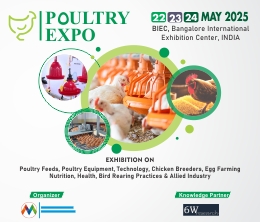Africa Ingots Market (2025-2031) | Size, Outlook, Growth, Share, Analysis, Forecast, Trends, Companies, Industry, Value & Revenue
Market Forecast by Countries (South Africa, Nigeria, Kenya, Rest of Africa), By Product Types (Single Crystals, Copper Alloys), By Material Types (Aluminium, Steel, Gold, Tin, Others), By Applications (Petroleum, Oil & Gas, Chemical, Marine, Others) And Competitive Landscape
| Product Code: ETC055909 | Publication Date: Feb 2021 | Updated Date: Dec 2024 | Product Type: Market Research Report | |
| Publisher: 6Wresearch | No. of Pages: 200 | No. of Figures: 90 | No. of Tables: 30 | |
Africa Ingots Market Highlights
| Report Name | Africa Ingots Market |
| Forecast period | 2025-2031 |
| Forecast size | USD 2.5 billion by 2031 |
| CAGR | 4.5% |
| Growing Sector | Oil and gas |
Topics Covered in the Africa Ingots Market Report
Africa Ingots Market report thoroughly covers the by Countries, Product Types, Material Types, Applications. The market report provides an unbiased and detailed analysis of the ongoing market trends, opportunities/high growth areas, and market drivers which would help the stakeholders to devise and align their market strategies according to the current and future market dynamics.
Africa Ingots Market Size & Analysis
The Africa Ingots Market Size was valued at approximately USD 1.9 billion in 2025 and is projected to reach USD 2.5 billion by 2031, growing at a CAGR of 4.5% over the forecast period. This growth is fueled by increasing industrialization, rising demand for metals in construction and manufacturing, and the expanding applications of ingots in various industries. Key regions, such as South Africa and Egypt, dominate the market due to their well-established infrastructure and mining capabilities, while emerging economies like Kenya and Ghana showcase strong growth potential.
Africa Ingots Market Synopsis
The increasing need for raw and semi-finished metals in manufacturing, automotive, industrial, and construction applications is driving the ingots market in Africa. Copper, aluminum, and steel are key metals that are necessary for equipment, electrical systems, packaging, and infrastructure development. Urbanization, industrial growth, and rising investments in infrastructure projects throughout Africa all have an impact on the market.
According to 6Wresearch, the Africa Ingots Market is anticipated to grow at a CAGR of 4.5% during the forecast period 2025-2031. Rapid urbanization, industrialization, and infrastructure development throughout the continent are the main factors propelling the Africa ingots market growth. The need for steel and aluminum ingots has grown dramatically as a result of investments in major projects including urban development, bridges, and roadways. The need for raw and semi-finished metals is also increased by the development of the manufacturing and transportation sectors. Local ingot manufacture is supported by the abundance of raw materials made available by the continent's abundant mineral resources and mining operations.
One of the many issues facing the ingots market in Africa is the lack of local production capability, which makes imports crucial to meeting demand. Cost stability and market accessibility are impacted by supply chain interruptions and fluctuating raw material costs. Additionally, the effective distribution and transportation of ingots are hampered in some areas by a lack of infrastructure. Trade within the continent is further complicated by regulatory complexity, such as inconsistent rules and tariffs. Last but not least, African producers' capacity to grow and compete in global markets is constrained by competition from producers across the world and a dearth of cutting-edge technology in regional manufacturing facilities.
Africa Ingots Market Trends
Significant trends influenced by changing industrial and economic dynamics are being observed in the Africa ingots market. To lessen reliance on imports, there is an increasing trend toward localizing manufacturing, which is aided by investments in the mining and metal processing sectors. Advanced manufacturing technologies are being more widely used, increasing the quality and efficiency of production. Because aluminum ingots are used in eco-friendly construction and renewable energy projects, there is a growing demand for lightweight, sustainable materials. Regional trade initiatives and agreements, like the African Continental Free Trade Area (AfCFTA), are also promoting growth, improving market accessibility, and encouraging cross-border cooperation.
Investment Opportunities in the Africa Ingots Market
The Africa ingots market presents a wealth of opportunities for investors seeking to capitalize on the region's growing industrial and manufacturing sectors. Increasing demand for metals such as aluminum, copper, and steel across industries like construction, automotive, and electronics has positioned the ingots market for robust growth. Governments across Africa are prioritizing infrastructure development and industrialization, which further amplifies the need for metal ingots.
Leading Players in the Africa Ingots Market
Africa's ingots market is made up of both domestic and foreign companies that produce and supply metal ingots throughout the continent. Rio Tinto, Alcoa Corporation, and Vedanta Resources are among the prominent international corporations with a substantial presence because of their massive mining and metal processing operations. In the aluminum sector, regional firms that serve both local and foreign markets are well-known, such as Egypt Aluminum (Egyptalum) and South Africa's Hulamin. Key participants in the copper ingot and steel industries are Copperbelt Energy Corporation in Zambia and ArcelorMittal South Africa.
Government Regulations
Government rules have a significant impact on how the Africa ingots market develops and operates. Many African nations have reduced their dependency on the export of raw materials by enacting policies that promote domestic manufacturing and value addition in the mining and metal processing sectors. Mining royalties, raw material export taxes, and incentives for downstream sectors are examples of common regulations. Growing enforcement of environmental regulations forces manufacturers to lower emissions and implement sustainable practices. The goals of trade policies, particularly regional accords such as the African Continental Free Trade Area (AfCFTA), are to facilitate international trade and encourage intra-African trade.
Future Insights of the Africa Ingots Market
Africa Ingots industry have a bright future thanks to ongoing industrial expansion, the construction of new infrastructure, and rising urbanization. Growing expenditures on metal processing and mining facilities around the continent will probably increase domestic production capabilities, lowering dependency on imports and promoting self-sufficiency. It is anticipated that using sustainable practices and cutting-edge technologies will increase productivity, lower expenses, and conform to international environmental requirements. In order to increase intracontinental commerce and build a more competitive and integrated market, regional trade agreements such as the African Continental Free commerce Area (AfCFTA) will be essential. Additionally, the focus on green building and renewable energy initiatives is expected to increase demand for lightweight and environmentally friendly materials, including aluminum ingots.
Market Segmentation Analysis
The report offers a comprehensive study of the subsequent market segments and their
leading categories.
South Africa to Dominate the Market- By Countries
According to Ashutosh, Senior Research Analyst, 6Wresearch, South Africa's well-established mining sector, robust manufacturing base, and cutting-edge infrastructure are projected to keep it at the top of the African ingots market.
Copper alloys to Dominate the Market- By Product Types
Due to Africa's abundant copper reserves, especially in Zambia and the Democratic Republic of the Congo, two of the world's top producers, copper alloys are probably going to take the lead. In industrial and electrical applications, copper alloys are essential.
Steel to Dominate the Market- By Material Types
Steel will probably take the lead because of its vital role in infrastructure, industry, and building throughout Africa, especially in South Africa.
Oil and gas to Dominate the Market- By Applications
Oil and gas are anticipated to be the most prevalent, especially in nations like Nigeria where the demand for specialist metals, particularly for equipment and infrastructure, is driven by the petroleum industry.
Key Attractiveness of the Report
- 10 Years of Market Numbers.
- Historical Data Starting from 2021 to 2024
- Base Year: 2024
- Forecast Data until 2031
- Key Performance Indicators Impacting the Market
- Major Upcoming Developments and Projects
Key Highlights of the Report:
- Africa Ingots Market Outlook
- Market Size of Africa Ingots Market, 2024
- Forecast of Africa Ingots Market, 2031
- Historical Data and Forecast of Africa Ingots Revenues & Volume for the Period 2021-2031
- Africa Ingots Market Trend Evolution
- Africa Ingots Market Drivers and Challenges
- Africa Ingots Price Trends
- Africa Ingots Porter's Five Forces
- Africa Ingots Industry Life Cycle
- Historical Data and Forecast of Africa Ingots Market Revenues & Volume By Product Types for the Period 2021-2031
- Historical Data and Forecast of Africa Ingots Market Revenues & Volume By Single Crystals for the Period 2021-2031
- Historical Data and Forecast of Africa Ingots Market Revenues & Volume By Copper Alloys for the Period 2021-2031
- Historical Data and Forecast of South Africa Ingots Market Revenues & Volume By Product Types for the Period 2021-2031
- Historical Data and Forecast of South Africa Ingots Market Revenues & Volume By Single Crystals for the Period 2021-2031
- Historical Data and Forecast of South Africa Ingots Market Revenues & Volume By Copper Alloys for the Period 2021-2031
- Historical Data and Forecast of Nigeria Ingots Market Revenues & Volume By Product Types for the Period 2021-2031
- Historical Data and Forecast of Nigeria Ingots Market Revenues & Volume By Single Crystals for the Period 2021-2031
- Historical Data and Forecast of Nigeria Ingots Market Revenues & Volume By Copper Alloys for the Period 2021-2031
- Historical Data and Forecast of Kenya Ingots Market Revenues & Volume By Product Types for the Period 2021-2031
- Historical Data and Forecast of Kenya Ingots Market Revenues & Volume By Single Crystals for the Period 2021-2031
- Historical Data and Forecast of Kenya Ingots Market Revenues & Volume By Copper Alloys for the Period 2021-2031
- Historical Data and Forecast of Rest of Africa Ingots Market Revenues & Volume By Product Types for the Period 2021-2031
- Historical Data and Forecast of Rest of Africa Ingots Market Revenues & Volume By Single Crystals for the Period 2021-2031
- Historical Data and Forecast of Rest of Africa Ingots Market Revenues & Volume By Copper Alloys for the Period 2021-2031
- Historical Data and Forecast of Africa Ingots Market Revenues & Volume By Material Types for the Period 2021-2031
- Historical Data and Forecast of Africa Ingots Market Revenues & Volume By Aluminium for the Period 2021-2031
- Historical Data and Forecast of Africa Ingots Market Revenues & Volume By Steel for the Period 2021-2031
- Historical Data and Forecast of Africa Ingots Market Revenues & Volume By Gold for the Period 2021-2031
- Historical Data and Forecast of Africa Ingots Market Revenues & Volume By Tin for the Period 2021-2031
- Historical Data and Forecast of Africa Ingots Market Revenues & Volume By Others for the Period 2021-2031
- Historical Data and Forecast of South Africa Ingots Market Revenues & Volume By Material Types for the Period 2021-2031
- Historical Data and Forecast of South Africa Ingots Market Revenues & Volume By Aluminium for the Period 2021-2031
- Historical Data and Forecast of South Africa Ingots Market Revenues & Volume By Steel for the Period 2021-2031
- Historical Data and Forecast of South Africa Ingots Market Revenues & Volume By Gold for the Period 2021-2031
- Historical Data and Forecast of South Africa Ingots Market Revenues & Volume By Tin for the Period 2021-2031
- Historical Data and Forecast of South Africa Ingots Market Revenues & Volume By Others for the Period 2021-2031
- Historical Data and Forecast of Nigeria Ingots Market Revenues & Volume By Material Types for the Period 2021-2031
- Historical Data and Forecast of Nigeria Ingots Market Revenues & Volume By Aluminium for the Period 2021-2031
- Historical Data and Forecast of Nigeria Ingots Market Revenues & Volume By Steel for the Period 2021-2031
- Historical Data and Forecast of Nigeria Ingots Market Revenues & Volume By Gold for the Period 2021-2031
- Historical Data and Forecast of Nigeria Ingots Market Revenues & Volume By Tin for the Period 2021-2031
- Historical Data and Forecast of Nigeria Ingots Market Revenues & Volume By Others for the Period 2021-2031
- Historical Data and Forecast of Kenya Ingots Market Revenues & Volume By Material Types for the Period 2021-2031
- Historical Data and Forecast of Kenya Ingots Market Revenues & Volume By Aluminium for the Period 2021-2031
- Historical Data and Forecast of Kenya Ingots Market Revenues & Volume By Steel for the Period 2021-2031
- Historical Data and Forecast of Kenya Ingots Market Revenues & Volume By Gold for the Period 2021-2031
- Historical Data and Forecast of Kenya Ingots Market Revenues & Volume By Tin for the Period 2021-2031
- Historical Data and Forecast of Kenya Ingots Market Revenues & Volume By Others for the Period 2021-2031
- Historical Data and Forecast of Rest of Africa Ingots Market Revenues & Volume By Material Types for the Period 2021-2031
- Historical Data and Forecast of Rest of Africa Ingots Market Revenues & Volume By Aluminium for the Period 2021-2031
- Historical Data and Forecast of Rest of Africa Ingots Market Revenues & Volume By Steel for the Period 2021-2031
- Historical Data and Forecast of Rest of Africa Ingots Market Revenues & Volume By Gold for the Period 2021-2031
- Historical Data and Forecast of Rest of Africa Ingots Market Revenues & Volume By Tin for the Period 2021-2031
- Historical Data and Forecast of Rest of Africa Ingots Market Revenues & Volume By Others for the Period 2021-2031
- Historical Data and Forecast of Africa Ingots Market Revenues & Volume By Applications for the Period 2021-2031
- Historical Data and Forecast of Africa Ingots Market Revenues & Volume By Petroleum for the Period 2021-2031
- Historical Data and Forecast of Africa Ingots Market Revenues & Volume By Oil & Gas for the Period 2021-2031
- Historical Data and Forecast of Africa Ingots Market Revenues & Volume By Chemical for the Period 2021-2031
- Historical Data and Forecast of Africa Ingots Market Revenues & Volume By Marine for the Period 2021-2031
- Historical Data and Forecast of Africa Ingots Market Revenues & Volume By Others for the Period 2021-2031
- Historical Data and Forecast of South Africa Ingots Market Revenues & Volume By Applications for the Period 2021-2031
- Historical Data and Forecast of South Africa Ingots Market Revenues & Volume By Petroleum for the Period 2021-2031
- Historical Data and Forecast of South Africa Ingots Market Revenues & Volume By Oil & Gas for the Period 2021-2031
- Historical Data and Forecast of South Africa Ingots Market Revenues & Volume By Chemical for the Period 2021-2031
- Historical Data and Forecast of South Africa Ingots Market Revenues & Volume By Marine for the Period 2021-2031
- Historical Data and Forecast of South Africa Ingots Market Revenues & Volume By Others for the Period 2021-2031
- Historical Data and Forecast of Nigeria Ingots Market Revenues & Volume By Applications for the Period 2021-2031
- Historical Data and Forecast of Nigeria Ingots Market Revenues & Volume By Petroleum for the Period 2021-2031
- Historical Data and Forecast of Nigeria Ingots Market Revenues & Volume By Oil & Gas for the Period 2021-2031
- Historical Data and Forecast of Nigeria Ingots Market Revenues & Volume By Chemical for the Period 2021-2031
- Historical Data and Forecast of Nigeria Ingots Market Revenues & Volume By Marine for the Period 2021-2031
- Historical Data and Forecast of Nigeria Ingots Market Revenues & Volume By Others for the Period 2021-2031
- Historical Data and Forecast of Kenya Ingots Market Revenues & Volume By Applications for the Period 2021-2031
- Historical Data and Forecast of Kenya Ingots Market Revenues & Volume By Petroleum for the Period 2021-2031
- Historical Data and Forecast of Kenya Ingots Market Revenues & Volume By Oil & Gas for the Period 2021-2031
- Historical Data and Forecast of Kenya Ingots Market Revenues & Volume By Chemical for the Period 2021-2031
- Historical Data and Forecast of Kenya Ingots Market Revenues & Volume By Marine for the Period 2021-2031
- Historical Data and Forecast of Kenya Ingots Market Revenues & Volume By Others for the Period 2021-2031
- Historical Data and Forecast of Rest of Africa Ingots Market Revenues & Volume By Applications for the Period 2021-2031
- Historical Data and Forecast of Rest of Africa Ingots Market Revenues & Volume By Petroleum for the Period 2021-2031
- Historical Data and Forecast of Rest of Africa Ingots Market Revenues & Volume By Oil & Gas for the Period 2021-2031
- Historical Data and Forecast of Rest of Africa Ingots Market Revenues & Volume By Chemical for the Period 2021-2031
- Historical Data and Forecast of Rest of Africa Ingots Market Revenues & Volume By Marine for the Period 2021-2031
- Historical Data and Forecast of Rest of Africa Ingots Market Revenues & Volume By Others for the Period 2021-2031
- Africa Ingots Market - Key Performance Indicators
- Africa Ingots Market - Import Export Trade Statistics
- Africa Ingots Market - Opportunity Assessment By Countries
- Africa Ingots Market - Opportunity Assessment By Product Types
- Africa Ingots Market - Opportunity Assessment By Material Types
- Africa Ingots Market - Opportunity Assessment By Applications
- Africa Ingots Market - Top Companies Market Share
- Africa Ingots Market - Top Companies Profiles
- Africa Ingots Market - Comparison of Players in Technical and Operating Parameters
- Africa Ingots Market - Strategic Recommendations
Markets Covered
The report provides a detailed analysis of the following market segments:
by Countries
- South Africa
- Nigeria
- Kenya
- Rest of Africa
By Product Types
- Single Crystals
- Copper Alloys
By Material Types
- Aluminium
- Steel
- Gold
- Tin
By Applications
- Petroleum
- Oil & Gas
- Chemical
- Marine
Africa Ingots Market (2025-2031): FAQs
| 1 Executive Summary |
| 2 Introduction |
| 2.1 Key Highlights of the Report |
| 2.2 Report Description |
| 2.3 Market Scope & Segmentation |
| 2.4 Research Methodology |
| 2.5 Assumptions |
| 3 Africa Ingots Market Overview |
| 3.1 Africa Regional Macro Economic Indicators |
| 3.2 Africa Ingots Market Revenues & Volume, 2021 & 2031F |
| 3.3 Africa Ingots Market - Industry Life Cycle |
| 3.4 Africa Ingots Market - Porter's Five Forces |
| 3.5 Africa Ingots Market Revenues & Volume Share, By Countries, 2021 & 2031F |
| 3.6 Africa Ingots Market Revenues & Volume Share, By Product Types, 2021 & 2031F |
| 3.7 Africa Ingots Market Revenues & Volume Share, By Material Types, 2021 & 2031F |
| 3.8 Africa Ingots Market Revenues & Volume Share, By Applications, 2021 & 2031F |
| 4 Africa Ingots Market Dynamics |
| 4.1 Impact Analysis |
| 4.2 Market Drivers |
| 4.3 Market Restraints |
| 5 Africa Ingots Market Trends |
| 6 Africa Ingots Market, 2021 - 2031 |
| 6.1 Africa Ingots Market, Revenues & Volume, By Product Types, 2021 - 2031 |
| 6.2 Africa Ingots Market, Revenues & Volume, By Material Types, 2021 - 2031 |
| 6.3 Africa Ingots Market, Revenues & Volume, By Applications, 2021 - 2031 |
| 7 South Africa Ingots Market, 2021 - 2031 |
| 7.1 South Africa Ingots Market, Revenues & Volume, By Product Types, 2021 - 2031 |
| 7.2 South Africa Ingots Market, Revenues & Volume, By Material Types, 2021 - 2031 |
| 7.3 South Africa Ingots Market, Revenues & Volume, By Applications, 2021 - 2031 |
| 8 Nigeria Ingots Market, 2021 - 2031 |
| 8.1 Nigeria Ingots Market, Revenues & Volume, By Product Types, 2021 - 2031 |
| 8.2 Nigeria Ingots Market, Revenues & Volume, By Material Types, 2021 - 2031 |
| 8.3 Nigeria Ingots Market, Revenues & Volume, By Applications, 2021 - 2031 |
| 9 Kenya Ingots Market, 2021 - 2031 |
| 9.1 Kenya Ingots Market, Revenues & Volume, By Product Types, 2021 - 2031 |
| 9.2 Kenya Ingots Market, Revenues & Volume, By Material Types, 2021 - 2031 |
| 9.3 Kenya Ingots Market, Revenues & Volume, By Applications, 2021 - 2031 |
| 10 Rest of Africa Ingots Market, 2021 - 2031 |
| 10.1 Rest of Africa Ingots Market, Revenues & Volume, By Product Types, 2021 - 2031 |
| 10.2 Rest of Africa Ingots Market, Revenues & Volume, By Material Types, 2021 - 2031 |
| 10.3 Rest of Africa Ingots Market, Revenues & Volume, By Applications, 2021 - 2031 |
| 11 Africa Ingots Market Key Performance Indicators |
| 12 Africa Ingots Market - Opportunity Assessment |
| 12.1 Africa Ingots Market Opportunity Assessment, By Countries, 2021 & 2031F |
| 12.2 Africa Ingots Market Opportunity Assessment, By Product Types, 2021 & 2031F |
| 12.3 Africa Ingots Market Opportunity Assessment, By Material Types, 2021 & 2031F |
| 12.4 Africa Ingots Market Opportunity Assessment, By Applications, 2021 & 2031F |
| 13 Africa Ingots Market - Competitive Landscape |
| 13.1 Africa Ingots Market Revenue Share, By Companies, 2024 |
| 13.2 Africa Ingots Market Competitive Benchmarking, By Operating and Technical Parameters |
| 14 Company Profiles |
| 15 Recommendations |
| 16 Disclaimer |
- Single User License$ 4,560
- Department License$ 5,055
- Site License$ 5,595
- Global License$ 6,000
Search
Related Reports
- Italy Textile Auxiliaries Market (2025-2031) | Outlook, Value, Companies, Share, Industry, Growth, Trends, Revenue, Forecast, Analysis & Size
- Tajikistan Diesel Genset (Generator) Market (2025-2031) | Value, Industry, Forecast, Revenue, Trends, Outlook, Share, Size, Companies, Growth & Analysis
- China Diesel Genset (Generator) Market (2025-2031) | Growth, Size, Trends, Industry, Value, Share, Analysis, Revenue, Segmentation & Outlook
- China Low Voltage Electric Motor Market (2025-2031) | Analysis, Size, Share, Trends, Growth, Revenue, industry, Forecast, Outlook & Segmentation
- Thailand Low Voltage Electric Motor Market (2025-2031) | Outlook, Revenue, Share, Value, Industry, Growth, Trends, Forecast, Analysis, Size & Companies
- India Wallpaper Market (2025-2031) | Forecast, Revenue, Industry, Companies, Outlook, Size, Analysis, Value, Growth, Share, Trends
- Thailand Artificial Flower Market (2025-2031) | Value, Industry, Outlook, Trends, Forecast, Size, Revenue, Companies, Analysis, Share & Growth
- United Arab Emirates Nitrogenous Fertilizers Market (2025-2031) | Outlook, Analysis, Industry, Forecast, Trends, Companies, Growth, Value, Size, Share & Revenue
- Germany Genset Rental Market (2025-2031) | Analysis, Share, Industry, Growth, Revenue, Companies, Trends, Outlook, Forecast, Value & Size
- Ethiopia Genset Rental Market (2025-2031) | Trends, Analysis, Companies, Revenue, Size, Forecast, Value, Outlook, Growth, Industry & Share
Industry Events and Analyst Meet
Our Clients
Whitepaper
- Middle East & Africa Commercial Security Market Click here to view more.
- Middle East & Africa Fire Safety Systems & Equipment Market Click here to view more.
- GCC Drone Market Click here to view more.
- Middle East Lighting Fixture Market Click here to view more.
- GCC Physical & Perimeter Security Market Click here to view more.
6WResearch In News
- India's Printer Market Faces 20.7% Decline in Q4 2023: Epson and HP Lead Amidst Downturn
- India's Camera Market Sees 8.9% Decline in Q4 2023; Canon Leads with 38.4% Share
- Doha a strategic location for EV manufacturing hub: IPA Qatar
- Demand for luxury TVs surging in the GCC, says Samsung
- Empowering Growth: The Thriving Journey of Bangladesh’s Cable Industry
- The future of gaming industry in the Philippines













